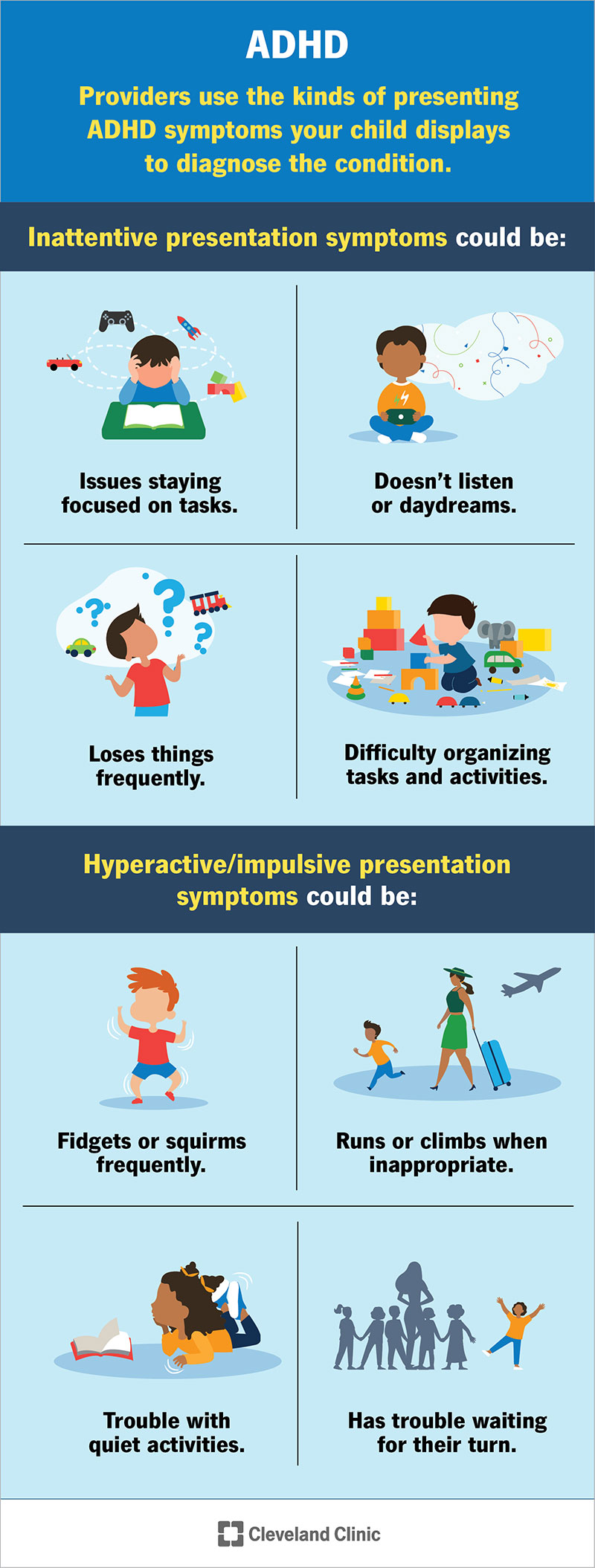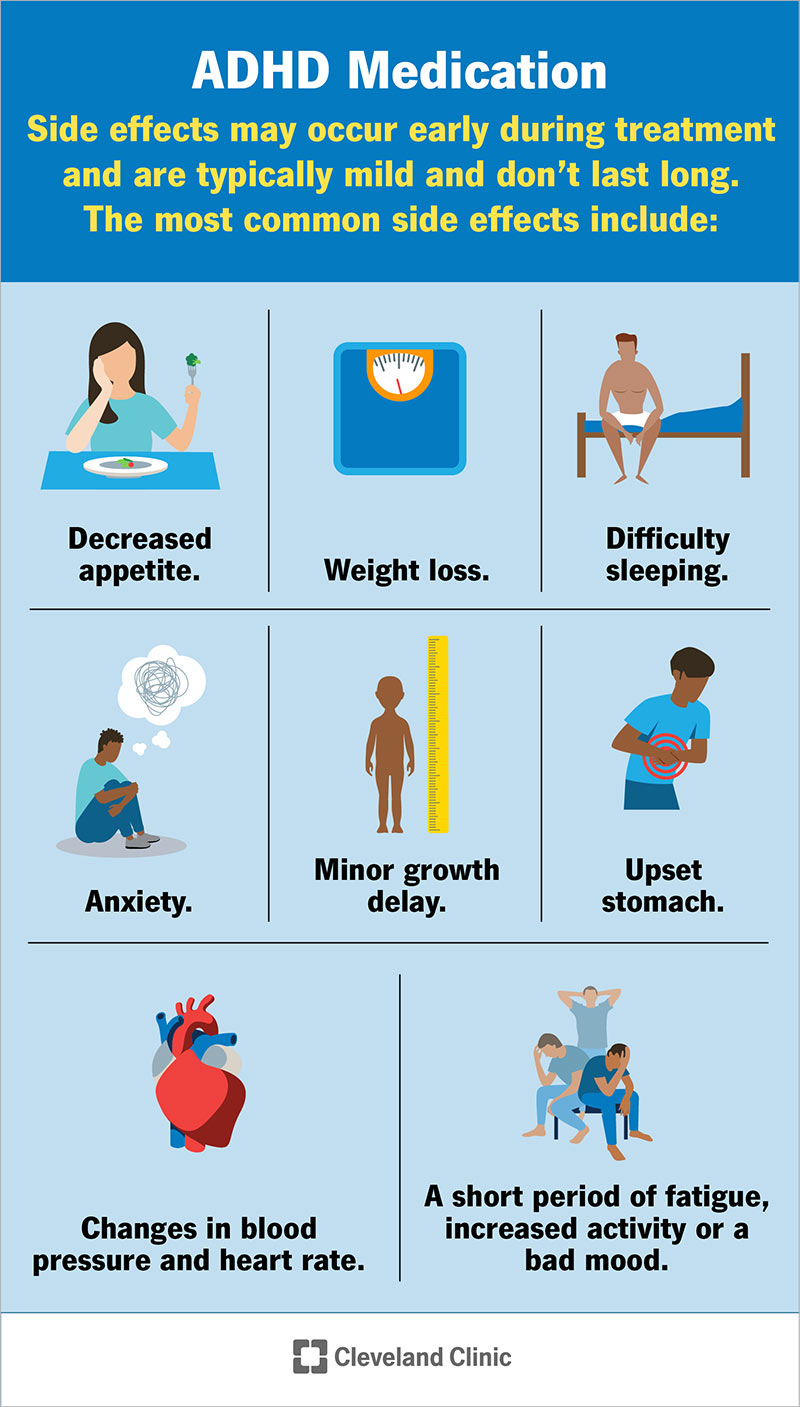The Advantages of Customized ADHD Treatment Prepare For Better Outcomes
The execution of tailored ADHD therapy plans has emerged as a critical approach in boosting restorative results for people affected by this condition (ADHD treatment). By acknowledging the special symptoms of ADHD in each individual, these customized treatments advertise higher interaction and motivation, ultimately leading to more efficient coping approaches.
Comprehending ADHD Variability
Although Attention-Deficit/Hyperactivity Condition (ADHD) is typically viewed as a particular problem, its symptoms can differ considerably among individuals. Gender differences likewise play a function, as men are a lot more often diagnosed with ADHD and frequently present a lot more obvious signs, whereas females may present with less evident inattentiveness.
Moreover, individuals with ADHD might experience a spectrum of psychological and behavior obstacles, such as stress and anxiety or opposite defiance, that can complicate medical diagnosis and therapy. It is likewise worth noting that ADHD can provide in different ways throughout different cultural contexts, affecting how signs and symptoms are recognized and addressed.
Trick Components of Personalization
Personalized ADHD treatment strategies are based in several essential parts that make certain reliable management of the problem. First, a thorough assessment is critical, including standardized ranking scales, meetings, and behavioral observations. This detailed evaluation allows clinicians to understand the individual's distinct symptoms, strengths, and obstacles.
2nd, the participation of several stakeholders, including parents, educators, and the individual, contributes to a holistic view of the individual's demands. Collaboration fosters an encouraging atmosphere that can adapt to the individual's context and way of life.
Third, therapy plans should be adaptable and versatile, enabling modifications based upon continuous responses and the individual's evolving needs. This versatility enables the assimilation of different restorative approaches, such as behavioral interventions, psychoeducation, and medicine management.
Additionally, cultural and contextual variables must be taken into consideration. Identifying the person's background, values, and preferences makes sure that the therapy matters and considerate.
Lastly, routine follow-ups and analyses are vital to check development and make essential adjustments. By concentrating on these vital components, individualized ADHD treatment plans can substantially enhance the performance of treatments, resulting in boosted outcomes for people with ADHD.
Improved Engagement and Motivation
To effectively promote improved engagement and inspiration in individuals with ADHD, it is vital to integrate techniques that reverberate with their rate of interests and strengths. Individualized treatment plans that align with an individual's interests can result in enhanced engagement in therapeutic activities, fostering a feeling of ownership and excitement for the process.
Using interactive and imaginative strategies can additionally considerably boost inspiration. For example, incorporating gamification components or real-world applications of skills can make tasks a lot more enticing and appropriate. This not only records focus yet likewise reinforces discovering via enjoyable experiences.
Moreover, establishing neurology and psychiatry possible and meaningful goals tailored to the person can strengthen motivation. When people see their progression in the direction of personally considerable goals, they are more probable to stay engaged. Regular responses and recognition of accomplishments can better endure inspiration, developing a favorable responses loophole that encourages continued initiative.
Last but not least, fostering an encouraging atmosphere additional info where people feel understood and valued can significantly influence their engagement levels. When treatment plans are developed collaboratively, integrating input from the person, they are more probable to really feel purchased their trip, inevitably leading to improved results in taking care of ADHD.
Improved Coping Techniques
Establishing boosted dealing strategies is crucial for individuals with ADHD, as it furnishes them with reliable devices to browse daily challenges. An individualized treatment plan permits the identification of specific coping systems customized to the person's unique needs and conditions - ADHD treatment. Techniques such as mindfulness, time administration abilities, and organizational techniques can be integrated into everyday regimens, cultivating a feeling of control and lowering anxiousness
Mindfulness techniques, including meditation and deep-breathing exercises, help people with ADHD focus their interest and regulate their emotions. Time administration techniques, such as making use of timers or breaking tasks into smaller, manageable steps, can minimize feelings of bewilder. Additionally, business tools like organizers and checklists can enhance effectiveness and liability.
Lasting Favorable Results
Applying tailored ADHD therapy plans can lead to significant lasting favorable results for individuals. These customized methods, which take into consideration unique signs, preferences, and life scenarios, facilitate more effective management of ADHD signs over time. By focusing on the details requirements of the person, these plans enhance adherence to therapy procedures and foster higher involvement in therapeutic activities.

In addition, customized therapy strategies can considerably decrease the threat of comorbid conditions, such as stress and anxiety and anxiety, which are frequently connected with ADHD. Early intervention and regular support aid individuals build resilience and coping methods, promoting total mental health.
Eventually, the long-term positive outcomes of individualized ADHD therapy prepares not just enhance the high quality of life for individuals but also add to their total health and success in different life domains. This alternative strategy highlights the value of customized care in taking care of ADHD properly.
Verdict
